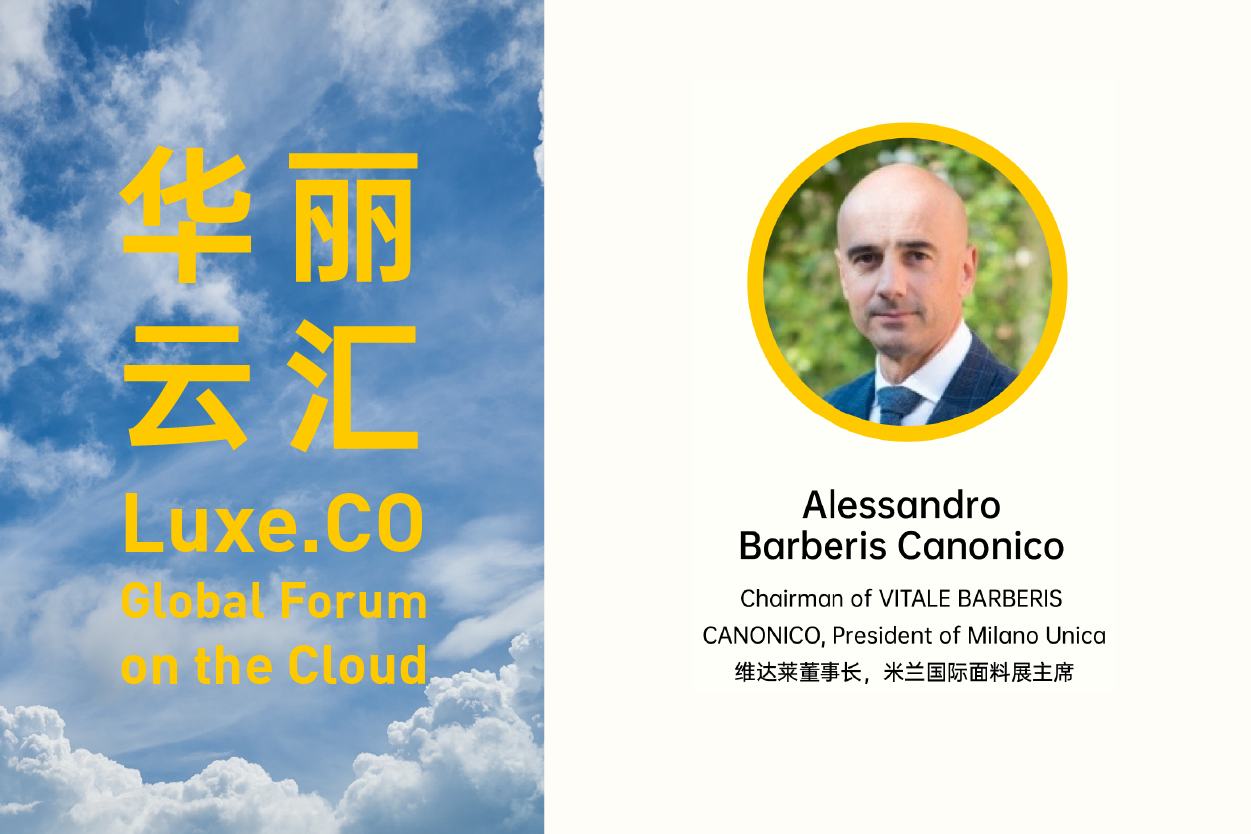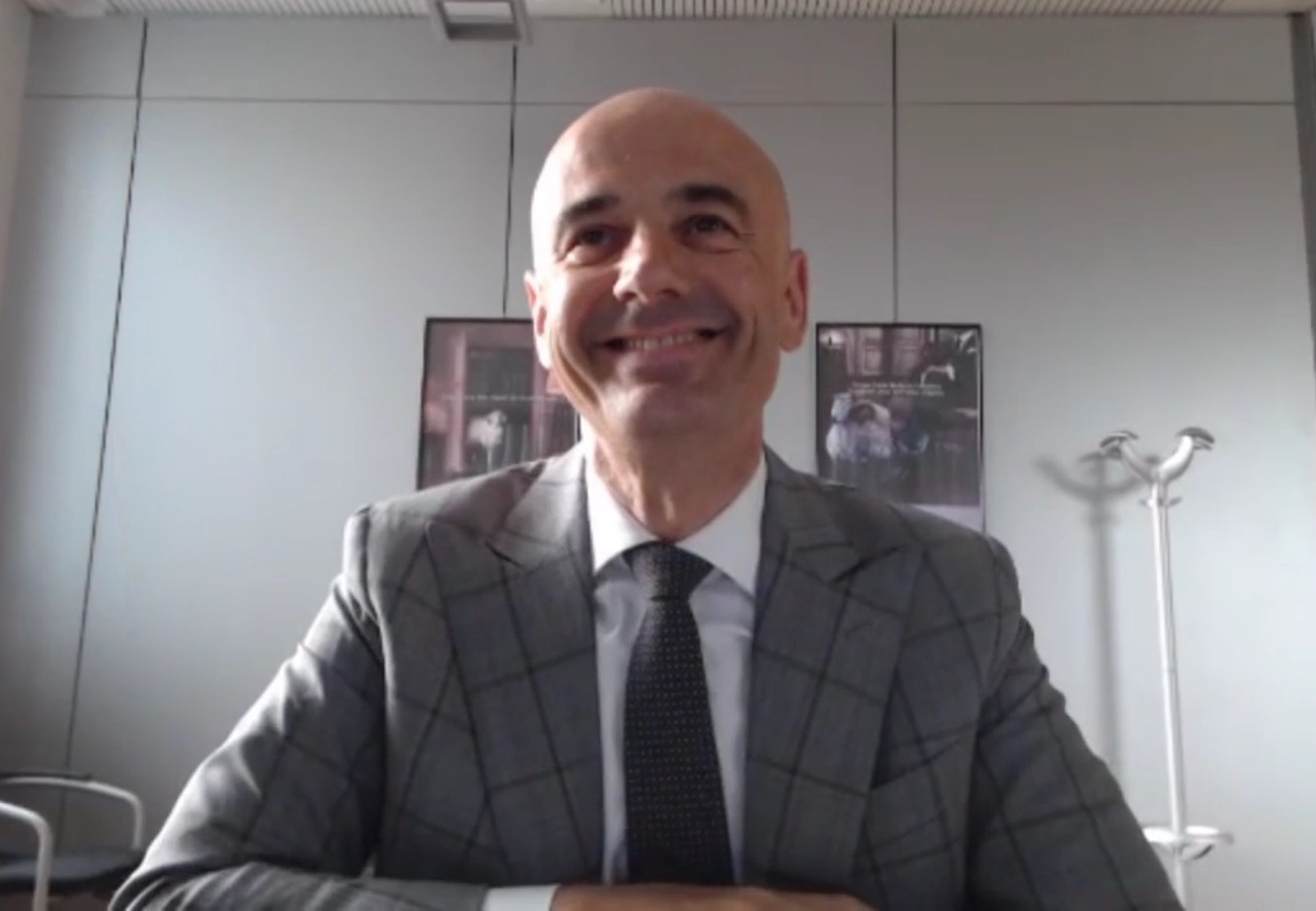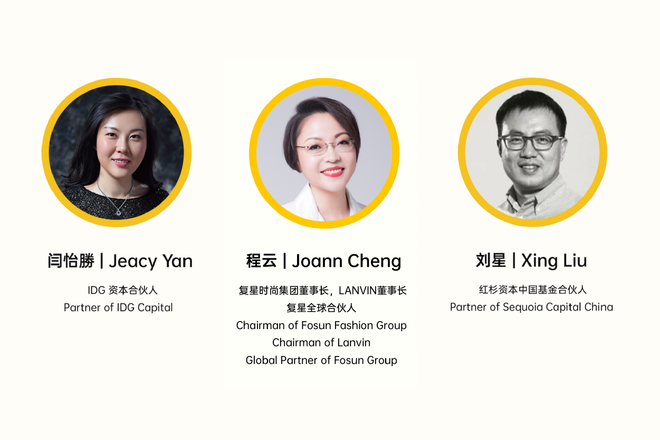A Conversation with the 13th Generation of Vitale Barberis Canonico: Sparking Creativity and Inspiration Through Fabric
June 20,2020
Vitale Barberis Canonico is one of the oldest woollen mills in the world. Founded in 1663, and serving clients from more than 100 countries, it is renowned for its pure wool flannel and wool and mohair blend fabrics, which are favoured by the worldтs most celebrated tailors.
At the тLuxe.CO Global Forum on the Cloud 2020т on May 23, Alicia Yu, Founder & CEO of Luxe.CO and President of Orange Bay University, invited Alessandro Barberis Canonico, President of Milano Unica, Chairman of Vitale Barberis Canonico, as well as members of the 13th generation of the Barberis Canonico family, to join an online discussion and share their perspective on the companyтs restructuring process, and the state of the Italian fashion industry during COVID-19. Alessandro also shared his understanding of тMade in Italyт.
тWe are not competing on cost. We are competing on inspiring our clients. We have a lot of creativity. And тMade in Italyт means creativity itself. The most important thing for all the Milanese millers is not to offer something that is cheaper, but something that can inspire our clients and gives new ideas for new trends. This is a luxury in itself.т

Alicia: How is Milan after COVID-19?
Alessandro: The weather is good, itтs summer now. Local businesses are not doing very well, but daily life is improving. Stores and restaurants reopened last week, and people were able to conduct some social activities. Everything is slowly improving.
Alicia: We learned that Vitale Barberis Canonico has more than 350 years of history. How do family traditions pass from one generation to another? And looking ahead to the global luxury market, what are your expectations for family businesses?
Alessandro: Our family business was founded in 1663, but for a long time it was all about one fabric. About a decade ago (2010), we made major changes to align our products more closely with market demand while ensuring that the quality of our products continues to improve. At present, our fabric exports to more than 100 countries, contributing 85 percent of sales, with long-term cooperation with more than 1,500 global customers.
Nowadays, we need to keep up with the needs of consumers, respond to changes in the market, and offer more diversified product choices. Ten years ago, tailors rarely mentioned тmade-to-measureт, but now this element has become a very important business for us.
Our production has now roughly doubled to an annual output of about 8 million meters (fabric for about 3 million suits), with sales revenue of 154 million euros in fiscal 2019. All of our products are made by 450 workers in two Italian factories (one in Pratrivero, Biella, Italy, and the other in the nearby town of Pray), ensuring that all production processes are 100% Italian.
At the same time, we are ensuring the sustainability of the whole production process. In 2018, we published our first sustainability report to make a sustainability commitment to our customers. Effective measures have been taken to save energy, prevent water pollution, noise pollution, air pollution, and other aspects to protect the environment and ensure a safe working environment for factory employees.

Alicia: As the President of Milano Unica, can you share what support the association has provided to the industry during the pandemic?
Alessandro: Milano Unica is in a difficult situation with a very uncertain future. The 31st Milano Unica in 2020 was scheduled to be held in Milan from September 7 to 9 and in Shanghai from September 23 to 25. Due to the pandemic restrictions, we do not know whether the exhibition will be held as scheduled. Given that China's current pandemic lockdown policy has been gradually lifted, I think the Shanghai Exhibition may be held as planned.
The 30th Milano Unica was held in Milan from February 2 to 6 this year, with 454 Milan exhibitors and 12,000 industry professionals in attendance. For the fabric industry, trade shows are an important platform for communication. Many of our peers invested a lot of time and energy into their new collections. We are now halfway there, and we are getting ready for the show in late September.
Alicia: As you said, "Made in Italy" is very important for fabric companies. But the cost of making in Italy is relatively high. Would you consider making some changes in the future?
Alessandro: It is true that the cost of manufacturing in Italy is higher than in other countries, but we are not competing on cost. We are competing on inspiring our clients. We have a lot of creativity. And тMade in Italyт means creativity itself. The most important thing for all the Milanese millers is not to offer something that is cheaper, but something that can inspire our clients, and gives new ideas for new trends. This is a luxury in itself.
That may be more important this year than in previous years. During the pandemic, all shops were closed and tailors' sales were low. Therefore, we need to provide some new products that are different from the past, and provide new inspiration for product design and sales.
тMade in Italyт is not just about style and design, it's also about the feel of the fabric. That's why we need big trade shows to showcase the feel of fabrics. The value of our fabric industry lies in sparking creativity and inspiration through quality fabrics.












Comments